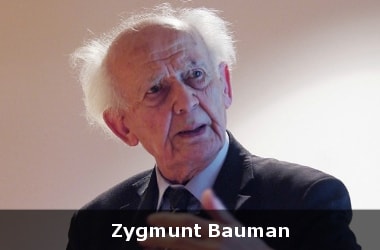
Zygmant Bauman, a prominent and prolific European sociologist has died at the age of 91 on 9th Jan 2017. The Polish-origin, left wing thinker explored the fluidity of identify in the modern world.
He also carried out analysis on topics such as consumerism, globalisation, consumerism and more.
Bauman was a strong moral voice for the marginalized in a world upended by globalisation.
Renowned for an approach that integrated sociology with philosophy and other disciplines, he focused on importance of ethics in human behavior.
During the 1990s, Bauman coined the term liquid modernity to describe the contemporary world in such a flux that people are left rootless.
He wrote books such as “Liquid Times” and “Liquid Modernity.” He examined human connections in a constantly changing world.
In Poland, he was controversial because a 2006 document showed he had served in the Internal Security Corps. Some nationalists saw him as an enemy of the country.
Bauman's theories were a massive influence on the anti-globalisation movement, focusing on outcasts and the marginalised.
Know More About Zygmunt Bauman- Born: November 19, 1925
- Location: Poznan, Poland,
- After the war, he rose quickly in the military ranks.
- By the early 1950s had become one of the youngest majors in the Polish army.
- During these years he was a communist and a member of the Polish Workers’ Party.
- Bauman studied sociology, then philosophy, at the University of Warsaw, and was teaching there when the communist regime emerged.
- Bauman lived and taught for a short time in Israel.
- He lectured at universities in Tel Aviv and Haifa from 1969 to 1971.
- Following this, he and his family settled in Britain.
- Bauman headed the Department of Sociology at the University of Leeds.
- Awards: European Amalfi Prize for Sociology in 1992, the Theodor W. Adorno Award in 1998 and the Prince of Asturias Award in 2010.
- The University of Leeds also created the Bauman Institute in his honor.